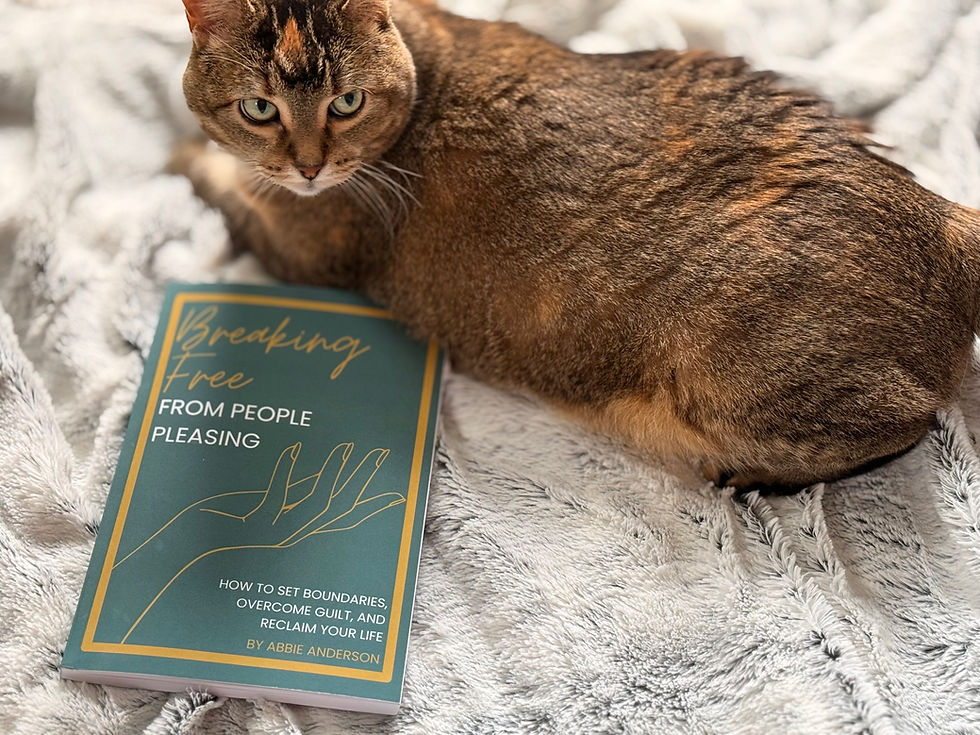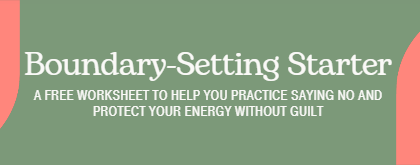Why People-Pleasers Struggle with Boundaries
- andersonabbiek
- Aug 1, 2025
- 2 min read

If you’re someone who’s always putting others first, feels anxious saying "no," or finds yourself stretched thin to avoid conflict—you’re not alone. People-pleasers often struggle with boundaries, not because they’re weak or broken, but because somewhere along the way, they learned that love, safety, or acceptance was conditional. Let's unpack why boundaries feel so hard, and how you can begin to change that.
1. People-Pleasing Is Rooted in Survival
Many people-pleasers grew up in environments where being "good," helpful, or agreeable was how they kept the peace. Saying no or asserting needs may have triggered rejection, punishment, or emotional withdrawal. Over time, this survival-based pattern becomes deeply ingrained—and boundaries start to feel unsafe, selfish, or wrong.
2. Chronic Guilt Blocks Boundary-Setting
The moment a people-pleaser sets a limit, guilt often floods in. Thoughts like, “I’m letting them down,” “They’ll be mad,” or “I’m being difficult” surface immediately. Guilt becomes the internal alarm system that says, "Danger: You’re risking disconnection." In reality, setting healthy boundaries protects relationships—it doesn’t destroy them.
3. Low Self-Worth Makes Boundaries Feel Inappropriate
When you don’t believe your needs matter as much as others', boundaries feel like overstepping. You may struggle to speak up, advocate for time to rest, or express what’s okay and not okay with you—because deep down, you fear your worth is tied to being “easy,” “likable,” or “low maintenance.”
4. Fear of Conflict or Rejection Keeps You Quiet
Many people-pleasers are terrified of confrontation. Even imagining someone being disappointed or frustrated can feel unbearable. This leads to avoidance—agreeing, accommodating, and suppressing—to avoid rocking the boat, even at great personal cost.
5. You Were Never Taught How to Set Boundaries
Boundary-setting is a skill—and like any skill, it requires guidance, practice, and support. If no one modeled it for you, or if boundary-setting was punished growing up, you’re not behind—you’re just learning something that was never taught.
What You Can Do:
Start small. Begin by identifying one area where a small “no” or “not right now” feels possible.
Challenge the guilt. Guilt doesn’t mean you’re doing something wrong—it means you’re doing something different.
Use scripts. Practice saying things like: “I can’t commit to that right now” or “That doesn’t work for me.”
Lean into support. Therapy, books, or even boundary-affirming content can help you unlearn what no longer serves you.
Closing: You don’t have to keep giving at your own expense. Boundaries are not rejection—they’re protection. They allow the real you to show up, feel safe, and connect in ways that are genuine, not just performative. And that, more than anything, is what people-pleasers are truly seeking: real connection without self-betrayal.
🔗 Want support as you start setting boundaries? Download my free Boundary Setting Starter to get scripts, mindset shifts, and a starter checklist.





Comments